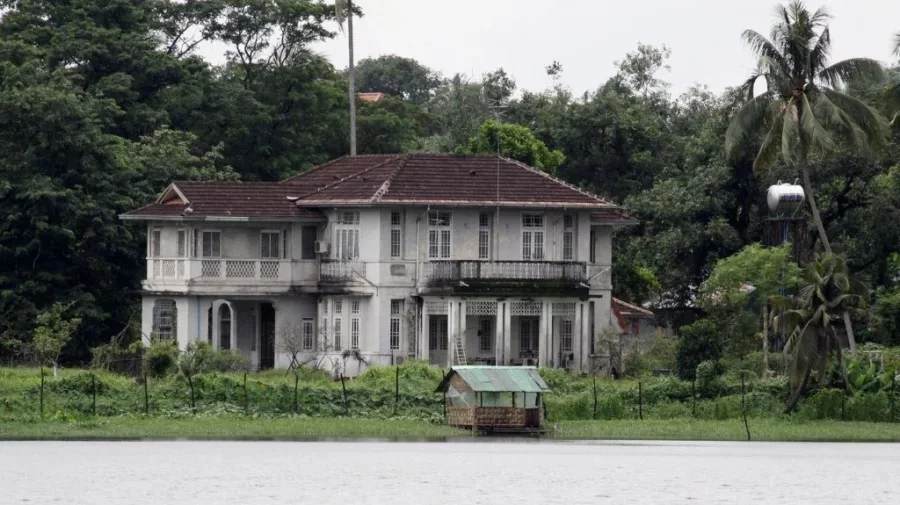Suu Kyi's iconic home on sale for $150 million
Share on:

The house where Suu Kyi lived for years under house arrest has gone up for auction but attracted no bids
A lakeside mansion where Myanmar’s former de facto head of government Aung San Suu Kyi spent 15 years under house arrest went up for sale for a minimum price of $150 million.
The house — put up for auction after a bitter decades-long legal dispute between Suu Kyi and her brother — initially fetched no offers.
What is special about the house?
Suu Kyi was confined to the two-story house by the Myanmar military after she gained prominence in leading mass demonstrations against the ruling military junta in 1988.
She was cut off from her husband and children, who were living in Britain, and spent time at home playing the piano, reading and meditating.
Her status as an advocate for democracy grew during the period of semi-isolation. Large crowds would regularly gather outside the property to hear her speak about democracy and the need to fight military rule in a non-violent way.
She continued to live at the villa after being released in 2010, as the junta appeared to be prepared to relinquish its grip on power.
Suu Kyi welcomed a series of foreign leaders, journalists and diplomats. Most notably, in 2012, then-US president Barack Obama visited Suu Kyi at the house and praised her as an “icon of democracy.”
The colonial-era villa on the leafy University Avenue, in Myanmar’s largest city Yangon, is a few doors down from the US embassy. It comes with 1.923 acres of land.
Suu Kyi later moved to the administrative capital Naypyidaw to attend parliament, remaining there to lead the country until a military coup toppled her in February 2021.
The 78-year-old is serving 27 years in detention at an undisclosed location for a string of offenses that her supporters say are trumped up.
Why was there a legal dispute?
The house was given by the government to Suu Kyi’s mother, Khin Kyi, after the assassination of her husband, founder of Myanmar’s independence movement General Aung San, in 1947.
Khin Kyi died in December 1988, soon after a failed uprising against military rule that saw Suu Kyi shoot to prominence as a co-founder of the National League for Democracy party.
Suu Kyi had returned to Myanmar to look after her ailing mother, while her brother Aung San Oo had moved to California and become a US citizen.
As a foreign national, he was not legally allowed to own or sell the home. Aung San Oo, who is said to be close to the military junta and is a critic of his sister, first sued Suu Kyi in 2000 for a share of the property.
Suu Kyi’s supporters say Aung San Oo’s claim has long been supported by the military. There was speculation that he would donate or sell his share to the junta.
The aim, Suu Kyi’s supporters say, was both to undermine her and take away the house that grew to symbolize her struggle against military rule.
He wanted the property to be sold by auction and the proceeds split between him and Suu Kyi. A court delivered a verdict that divided the plot equally among the siblings in 2016.
This was followed by subsequent disputes that culminated with a Supreme Court decision last year to have the house auctioned.
Source: Deutsche Welle

